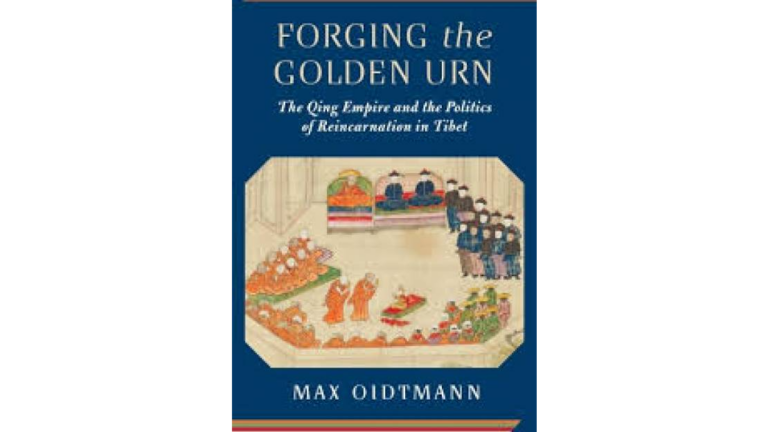Forging the Golden Urn: The Qing Empire and the Politics of Reincarnation in Tibet

In 1995, the People’s Republic of China resurrected a Qing-era law mandating reincarnations of prominent Tibetan Buddhist monks be identified by drawing lots from a golden urn. The Chinese Communist Party hoped to limit the Dalai Lama and the exiled Tibetan government’s ability to independently identify reincarnations. In so doing, they made a long-forgotten ceremony a controversial symbol of Chinese sovereignty in Tibet. In Forging the Golden Urn, Max Oidtmann ventures into the polyglot world of the Qing empire in search of the origins of the golden urn tradition, seeking to understand the relationship between the Qing state and its most powerful partner in Inner Asia—the Geluk school of Tibetan Buddhism. Oidtmann traces how a Chinese bureaucratic technology was exported to Tibetan and Mongolian regions of the Qing Empire and transformed into a ritual for identifying and authenticating reincarnations. This text sheds new light on how the empire’s frontier officers grappled with matters of sovereignty, faith, and law and reveals the role that Tibetan elites played in the production of new religious traditions in the context of Qing rule.